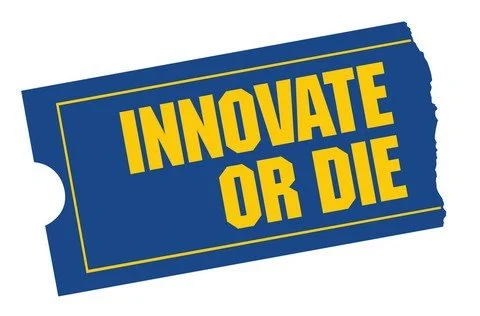Do you know your business breakeven point? Knowing how much income you must generate to cover all fixed and variable costs means you can make better business plans and financial decisions for long-term sustainability and profit.
2022 Tax Checklists
It's that time of year, and tax time is upon us. We are looking forward to seeing you all again.
We have included our tax time checklists to help you get your information together.
If you would like to book an appointment or have any questions, do not hesitate to contact us today.
Innovate or Die
The mantra we have always lived by at Leddy’s & Associates; “Innovate or Die”. It may seem a little aggressive, but it really isn’t, it is a way of changing and surviving. Over the last few years, we have seen a lot of businesses flourish and a lot of businesses fail. These businesses have ranged from small businesses to public companies, and no one is immune from turmoil. The businesses that flourished despite the challenges are those that have been willing to adapt, innovate and think outside the box.
Change
Change is often an unavoidable constant in our lives. Sometimes it’s within our control other times it’s not. Our jobs or roles change, our businesses undergo restructures and re-designs within the strategies, the target markets, or products, and we need to be able to adjust.
Fortunately, there are ways to adapt to change, and even to take advantage of it.
Savings or Investing
Whether your goals are short term or long term both savings and investing have their place.
In the short term it is important to save and to have an emergency fund to cover any household or business expenses that are easily accessible and liquid. Experts recommend 3 to 6 months is a good buffer. Longer term, you might want to consider investing as a way of growing your money and out running inflation.
The differences between saving and investing are below, so you can decide what’s right for your personal circumstances. This article isn’t personal advice, so if you’re not sure what to do, please seek advice.
Saving – I need the money within 5 years
While cash savings won’t fall in value, they’re not risk free. Cash often struggles to keep up with rising prices, or inflation, so you can lose money in real terms.
When should I save?
· You’ve got a short-term goal in mind, like a holiday, wedding or even a house purchase or new equipment, new employees, or a new project.
· It’s your just-in-case money – if the washing machine breaks or an unexpected business expense or opportunity is presented you want to have cash available to act promptly.
· You want to be able to access your money straight away
Investing – I won’t need the money for 5-10 years
Investing involves spreading your money across different areas which aren’t cash. It can help you to grow your money over the long term. But unlike the security offered by cash, investments can fall as well as rise in value, so you could get back less than you invest.
Here are some of the main ways to consider investing your money:
· Shares- Purchasing a part of a private or public company, with the hope of capital growth and/or regular dividend payments.
· Bonds– issued by companies or governments, to help them finance their processes. In simple terms, you’re buying a portion of their debt – hopefully in exchange for an interest payment and your money back at the end.
· Property– An investment property is real estate property purchased with the intention of earning a return on the investment either through rental income, the future resale of the property, or both. The property may be held by an individual investor, a group of investors, or a corporation.
· Managed Funds– individual investors give their money to a managed fund – which invests all the money, choosing investments on everyone’s behalf based on the fund’s objectives. They aim to grow the money over time, produce an income, or a combination of both. You’ll pay a fee to own a ‘unit’ in a fund, in exchange for the manager’s expertise and time spent looking after your money.
· Retirement Funds (such as an SMSF)- Investing is generally long term and a self-managed super fund is a great way to have control over your retirement planning.
· Invest in yourself- Continue to use your funds to invest in education and professional development to upskill yourself to keep up with the ever-changing landscape and to increase your knowledge.
· Invest in your business- Purchasing new equipment, investing in systems and advice are key to growing your business and increasing your yearly returns.
When should I invest?
· When you’re willing and able to accept a level of risk – and won’t need the money for at least 5 years. With investing, there’s no guarantee of making money and you could get back less than you invest
· When you want the chance to grow your money more than you could with cash
· After you’ve saved a supply of cash that you can access easily for emergencies
If you would like to discuss savings, investing, self-managed super funds or business planning contact us today and we will help you determine what is best for you and how to get the most out of your money both personally and in your business.




